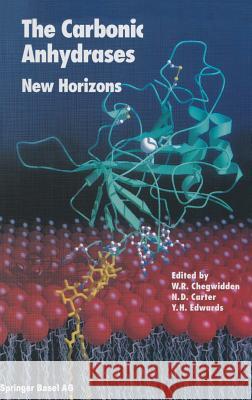The Carbonic Anhydrases: New Horizons » książka
The Carbonic Anhydrases: New Horizons
ISBN-13: 9783764356705 / Angielski / Twarda / 2000 / 619 str.
Carbonic anhydrase (CA) is a seemingly ubiquitous enzyme of profound physiological importance, which plays essential roles in respiration, acid-base homeostasis, bone resorption, calcification, photosynthesis, several biosynthetic pathways and a variety of processes involving ion, gas and fluid transfer. This enzyme, which is present in at least three gene families (a, ss, ?), has found favour as a model for the study of evolution of gene families and for site-directed mutagenesis in structure/function relationships, for protein folding and for transgenic and gene target studies. Since the early use of CA inhibitors as diuretics and in treating congestive heart failure, the enzyme has been target of considerable clinical attention. Much of this is now focused on endeavours to produce a new generation of such drugs for the effective treatment of glaucoma and other potential applications. Recent data, suggesting links between CA and various disease processes, including cancer, have stimulated further..











